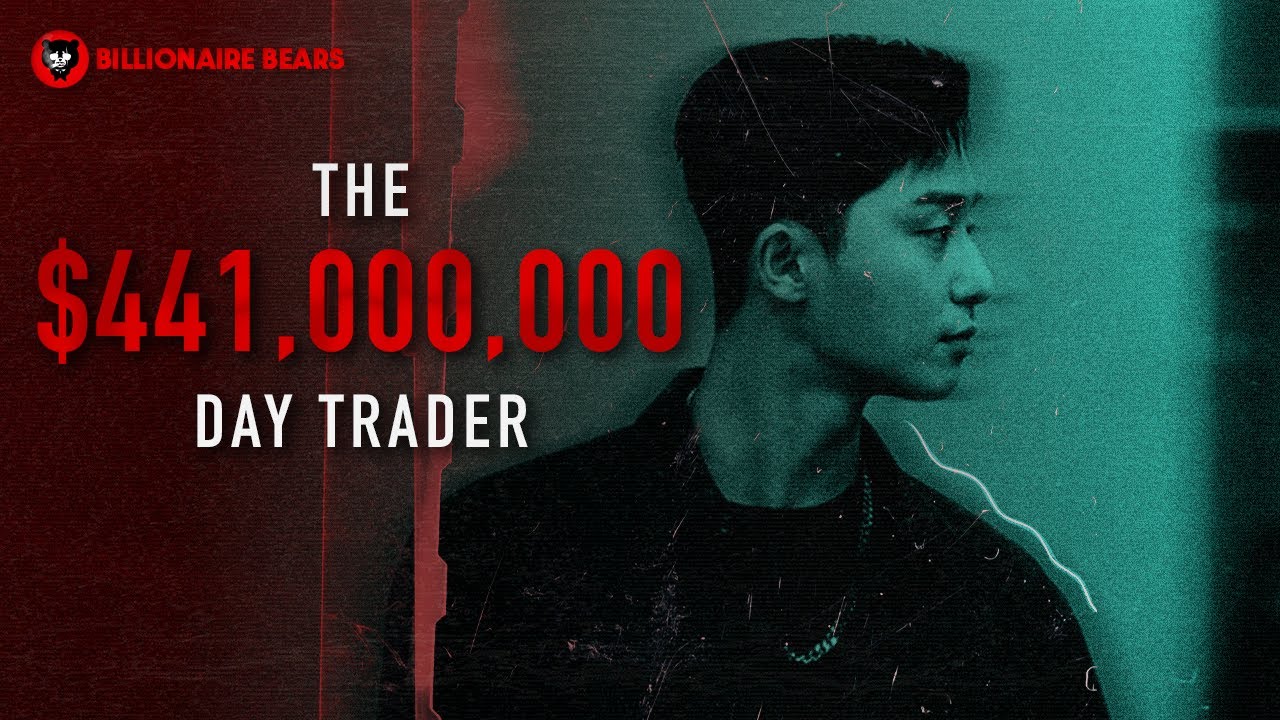CIS - The Most Notorious Day Trader in Japan | Full Documentary
Summary
TLDRThe script narrates the rise of CIS, Japan's infamous day trader, from his childhood in the booming 1979 economy to his legendary status in the markets. Despite academic struggles and a strict upbringing, CIS's competitive spirit and pattern recognition skills, honed through video games, led him to master day trading. His journey sees him overcoming personal challenges, experiencing monumental wins and devastating losses, ultimately learning the importance of adaptability and humility in the face of market unpredictability.
Takeaways
- 🌐 Japan's economy was booming in the 1980s, with Japanese banks and companies dominating global markets.
- 👦 The story revolves around a character named CIS, a legendary day trader who grew up in Tokyo during this period.
- 🎰 CIS learned early about the concept of 'expected values' and patterns from a lottery game incident in his childhood.
- 🏫 CIS struggled academically and faced strict parenting, which led to a sense of inadequacy and a drive to excel in other areas.
- 🎮 CIS found a passion for video games and arcades, developing skills in pattern recognition and emotional control that would later translate to trading.
- 📈 CIS entered the trading world with a traditional long-term investment strategy but quickly adapted to day trading for quicker gains.
- 📊 He refined his trading strategy using moving averages and trend analysis, which led to significant early success.
- 💡 The importance of knowing when to exit a trade, inspired by his gaming experience, became a crucial part of CIS's trading philosophy.
- 🚀 CIS's account grew exponentially, turning him into a notorious figure in the Japanese day trading community.
- 📉 However, market adaptability and personal pride led to significant losses for CIS, highlighting the unpredictability of financial markets.
- 💼 Despite setbacks, CIS's determination and adaptability allowed him to recover and continue to be a successful trader.
- 🏠 Despite his wealth, CIS maintains a humble lifestyle, focusing on his family and his passion for gaming.
Q & A
In what year did Japan's stock and real estate market experience a significant boom, as mentioned in the script?
-The script indicates that Japan's stock and real estate market experienced a significant boom in 1979.
What was the nickname given to the young man who later became known as CIS, and what does it mean in Japanese?
-The young man was given the nickname 'CIS', which means 'death' in Japanese.
What was the first significant lesson CIS learned about games from his experience with the lottery game in kindergarten?
-CIS learned about the universal law that every game has 'expected values' and 'patterns' from his experience with the lottery game.
How did CIS's strict upbringing and academic struggles impact his self-esteem during his childhood?
-CIS's strict upbringing and struggles with academics led him to feel like a 'good-for-nothing kid' and contributed to his emotional instability.
What video game did CIS play at the local arcade, and how did it help him develop his skills for future trading?
-CIS played fighter video games at the local arcade, which helped him develop pattern recognition and the ability to think fast and stay calm under pressure.
What was the name of the virtual game CIS became engrossed in during his college days, and how did it relate to his later trading strategies?
-CIS was engrossed in 'Ultima Online', where he developed his character, forged weapons, and managed resources, which he later referred to as 'Building and Protecting Assets', akin to his trading strategies.
How did CIS's initial trading strategy of buying undervalued quality companies perform, and what changes did he make to his strategy?
-CIS's initial strategy of buying undervalued quality companies and holding them long-term did not yield fast enough results, leading him to shift to day trading and scalping for daily gains.
What key technical indicators did CIS use to determine the direction of market trends in his refined trading strategy?
-CIS used the 5-day moving average and the 25-day moving average as key technical indicators to determine the direction of market trends.
How did CIS's approach to managing winning and losing trades contribute to his success as a day trader?
-CIS minimized the time held on losing bets and increased the time held on winning bets, which improved his earnings and contributed to his success.
What significant event in 2006 led to CIS experiencing his greatest loss ever in trading?
-The investigation of the Japanese eCommerce company Live-door for accounting fraud in 2006 led to panic selling and stop losses, resulting in CIS's greatest loss of 5 million dollars.
How did CIS adapt his trading strategy after realizing the limitations of his previous approach and the impact of his growing account size?
-CIS recognized the need to create a new day trading strategy that better adapted to his portfolio size and allowed for large profits with aggressive plays, while also addressing his overconfidence and pride.
Outlines

This section is available to paid users only. Please upgrade to access this part.
Upgrade NowMindmap

This section is available to paid users only. Please upgrade to access this part.
Upgrade NowKeywords

This section is available to paid users only. Please upgrade to access this part.
Upgrade NowHighlights

This section is available to paid users only. Please upgrade to access this part.
Upgrade NowTranscripts

This section is available to paid users only. Please upgrade to access this part.
Upgrade NowBrowse More Related Video

Day Trading Legend: BNF - The God of Japanese Day Trading

Charlie Chaplin की वो कहानी जो किसी को नहीं पता ? | Real Story Of Charlie Chaplin

Hikayat Hang Tuah Dan Menurut Sulalatus Salatin

A HISTÓRIA DE JOSÉ DO EGITO COMO VOCÊ NUNCA VIU - História Bíblica (COMPLETA)

L'Histoire du Flic le Plus Efficace du Monde !

Stories You Didn't Know About Football Players
5.0 / 5 (0 votes)